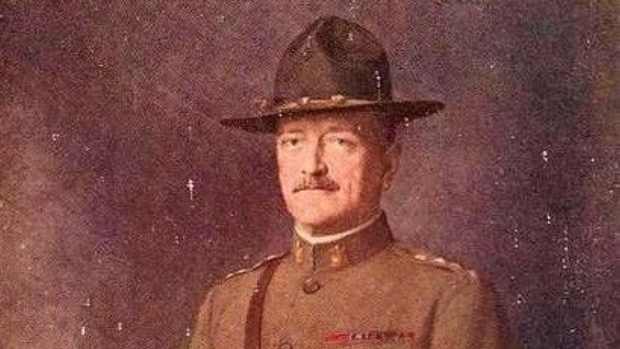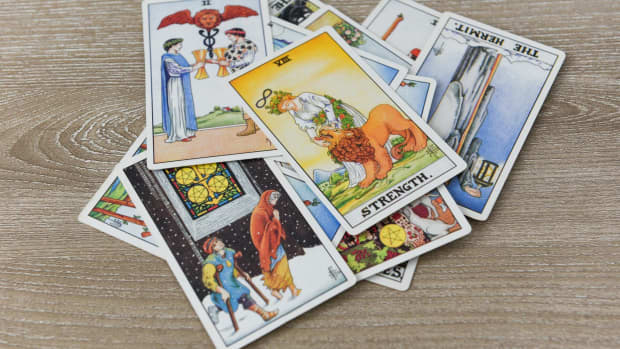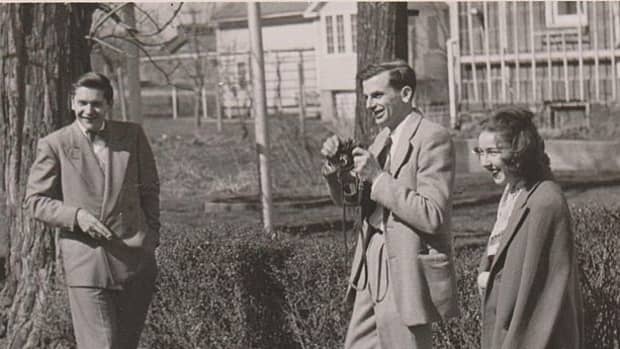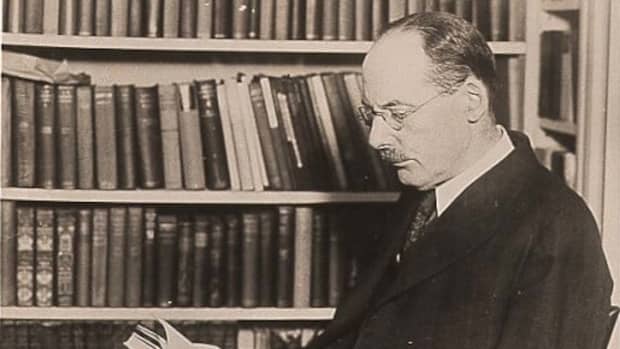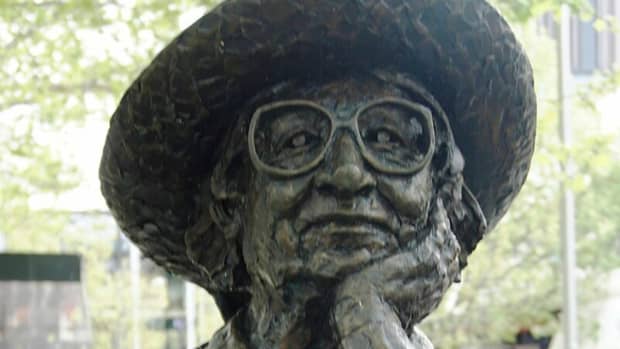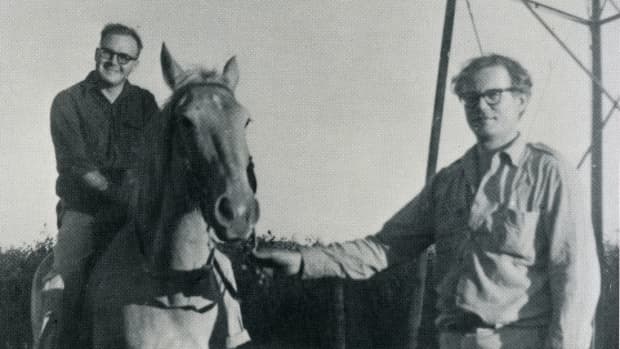Richard Wright’s “Big Black Good Man:” Olaf’s Misconceptions
Olaf
In Richard Wright’s “Big Black Good Man,” Olaf (the main character) gives insight into his life and past experiences. When Jim the big black sailor enters Olaf’s life, Jim brings out thoughts, feelings, and emotions in Olaf that are unexpected. Jim's intervention creates contradictions between what Olaf thinks and reality. The limited omniscient point of view allows the reader to detect both dramatic and verbal irony, which in turn shows Olaf’s prejudice and racism.
Misconception Based on Travel
Olaf comments on how he has “traveled all over the world” and interacted with diverse people (207), which one would assume means he is well-rounded and worldly. This leads Olaf to believe that he is not prejudiced or racist (211). However, when Olaf sees the big black man, the words Olaf uses to describe him suggest otherwise. Throughout the story, Olaf never really refers to Jim by his name, denying Jim a true identity. Therefore, it makes it easy for Olaf to see Jim as “black mass” that is inhuman (210). Olaf does not see Jim as human because he is, “Too big, too black, too loud, too direct, and probably too violent to boot…” (209). This comment alludes to Olaf being prejudiced because he makes assumptions about Jim before he gets to know him.
Interview With Richard Wright
Problem With Color and Size
Considering Olaf has fought and eaten with all types of men (209), it would seem that Olaf would have no problem with Jim. However, Olaf wants to deny Jim a room simply because of “[Jim’s] size and color,” showing that Olaf is racist. Olaf feels “frightened and insulted” by Jim simply because he does not fit into a category that Olaf sees as acceptable. Olaf asks himself the question, “Why did he have to come here?” with an emphasis on “he” (211). For Olaf, it would be better “If only the man were small, brown, and intelligent-looking” (211). This statement is verbally ironic because Olaf is suggesting that if Jim fits this description then he would be a better person, but does not see the true meaning behind his words. Olaf’s racism is apparent because he prefers small, brown men to big, black men.
Impact of Diction
Olaf’s word choice in further describing Jim reveals dramatic irony and emphasizes his racism. Olaf thinks, “God oughtn’t make men as big and black as [Jim],” and that Jim is the “devil of blackness” (211, 213). This shows dramatic irony because Olaf is not capable of realizing the true reason behind his hatred of Jim. The reader is able to see that racism lies at the bottom of Olaf’s hatred toward Jim. Olaf simply does not like Jim because of the color of his skin.
Good/White Versus Bad/Black
Olaf’s hatred toward Jim becomes truly apparent when he ponders the death of Jim (215). There is a repetition of the color black in reference to Jim and negative images in Olaf’s imagination of his revenge. Olaf fantasizes that “The ship would sink slowly to the bottom of the cold, black, silent depths” and how a shark would eat the “evil giant’s black flesh” (215). However, Olaf reserves the color white for things he perceives as good and innocent. He thinks of “a shark, a white one” eating Jim, but “Olaf felt a little guilty about all the many innocent people…all white and blonde” (215). The images that Olaf envisions reflect verbal irony. On the surface, it seems as though Olaf is simply imagining the demise of Jim. But underneath everything is the classic good/white versus evil/black scenario. Olaf is incapable of interpreting his thoughts as racist, but the reader is able to see the underlying reality.
More Dramatic Irony
One of the last statements Olaf makes to Jim is that he is “a big black good man” (217). This shows dramatic irony because Olaf is giving the impression that big black men cannot be or are not good. Previous to Jim giving Olaf shirts in return for fulfilling his request, Olaf can only imagine that Jim wants to kill him (217). When Olaf realizes that Jim is simply returning the favor, Olaf can only comment that he is a good black man. Olaf perceives less than the reader because he thinks this is a compliment when in fact it is a condescending statement. Racism is not apparent here but prejudice is. It is as if Olaf has prejudged big, black men to be overpowering and brutes. This is why it is surprising to Olaf that Jim actually returns to the motel with good intentions that he has had all along (217).
In Sum
Olaf’s thoughts about the big black man are for the most part based on the fact that he is scared of Jim. This leads Olaf to reveal his true feelings towards Jim through the limited omniscient view of his character. Olaf is not able to see the contradictions between what he says and what is thought in his mind. This inner conflict allows the reader to see the true meaning behind Olaf’s words and conclude that he is in some aspects racist and prejudiced.
Additional Information
"Big Black Good Man" was originally part of a collection of short stories. Richard Wright published two collections of short stories. The second, titled Eight Men: Short Stories, included "Big Black Good Man." The other seven stories are:
“The Man Who Was Almost a Man”
“The Man Who Lived Underground”
“The Wan Who Saw the Flood”
“Man of all Work”
“Man, God Ain’t Like That…”
“The Man Who Killed a Shadow”
“The Man Who Went to Chicago”
Sources and Further Reading
- Advice on Writing and Creativity From Famous Black Authors
Writing can be a daunting task that involves a lot more than technical skills and facility with language. To finish what we start, most of us need more. We need a perspective on writing that sustains us. - Paul Laurence Dunbar's "Sympathy"
The speaker of Paul Laurence Dunbar's "Sympathy" metaphorically elucidates, through the employment of a "caged bird," the stifling condition of a human soul encased in a human body. - Poem Analysis: 'Let America Be America Again' by Langston Hughes
'Let America Be America Again' is a plea for freedom and equality. Langston Hughes was poor and on a train ride through the Depression-hit US, far from the American Dream.
- Wright, Richard. “Big Black Good Man.” Literature: Reading, Reacting, Writing. 4th ed. Ed. Laurie G. Kirszner and Steven R. Mandell. Fort Worth: Harcourt, 2001. 206-218. Print.
- “Richard Wright: Biography.” (n.d.). http://www.math.buffalo.edu/~sww/wright/wright_bio.html
Comments
Stephanie Bradberry (author) from New Jersey on March 21, 2018:
Hello Anon,
This is why the title has the word "Misconception." Often we can get on a slippery slope based on semantics (for example, you say your professor explains this "better," but why not say your professor provided another way of looking at Olaf's thoughts and actions?). Unconscious bias is a useful term, but that's like sugar coating reality in some cases. Why is a person "unconscious" about something? My experiences in life are certainly different than your professor's. But there are some interesting coincidences (I am brown skinned, only in my 30s though, both parents served in the military--as much of my family did and does--faced in-direct and direct racism, sexism and sexual harassment as a teacher/professor, and hold 3 Doctoral candidacies). Webster's Dictionary's first defines racism as, "belief in or doctrine asserting racial differences in character, intelligence, etc. and the superiority of one race over another or others." Their other definition get into actions and feelings based on this bias, which is what you speak of. The fact that he thinks a certain way means he is not "unconscious." He is just lacking the wording that others would appropriate to it and is not willing to say these thoughts outloud. Racism in and of itself is bias.
Anon on March 20, 2018:
My professor explained the issue in a better way calling it, not racism but, unconscious bias(and he was an African-American professor who is quite old, served in the Navy under scrutiny and attained 3 Doctoral degrees if that matters). Which he defined as simply having an unknown bias to ones self towards something. He isn't technically a racist as he claims to be fine with him if he was smaller and brown. Google says racism is "a person who shows or feels discrimination or prejudice against people of other races, or who believes that a particular race is superior to another." Which is true. He doesn't say intellectual and white, or Hispanic, or Asian. He says brown, which is also associated with African Americans. Olaf doesn't even realize his bias. It isn't actual racism however.
Stephanie Bradberry (author) from New Jersey on October 22, 2014:
Thank you so much for the wonderful response Jordan J.!
Jordan J. on October 16, 2014:
You did a awesome job on this article. It was very helpful. Thank you so much !!
Stephanie Bradberry (author) from New Jersey on October 17, 2013:
Thanks. I am so glad you found this brief article useful!
thank you on October 17, 2013:
it's helpful to me




